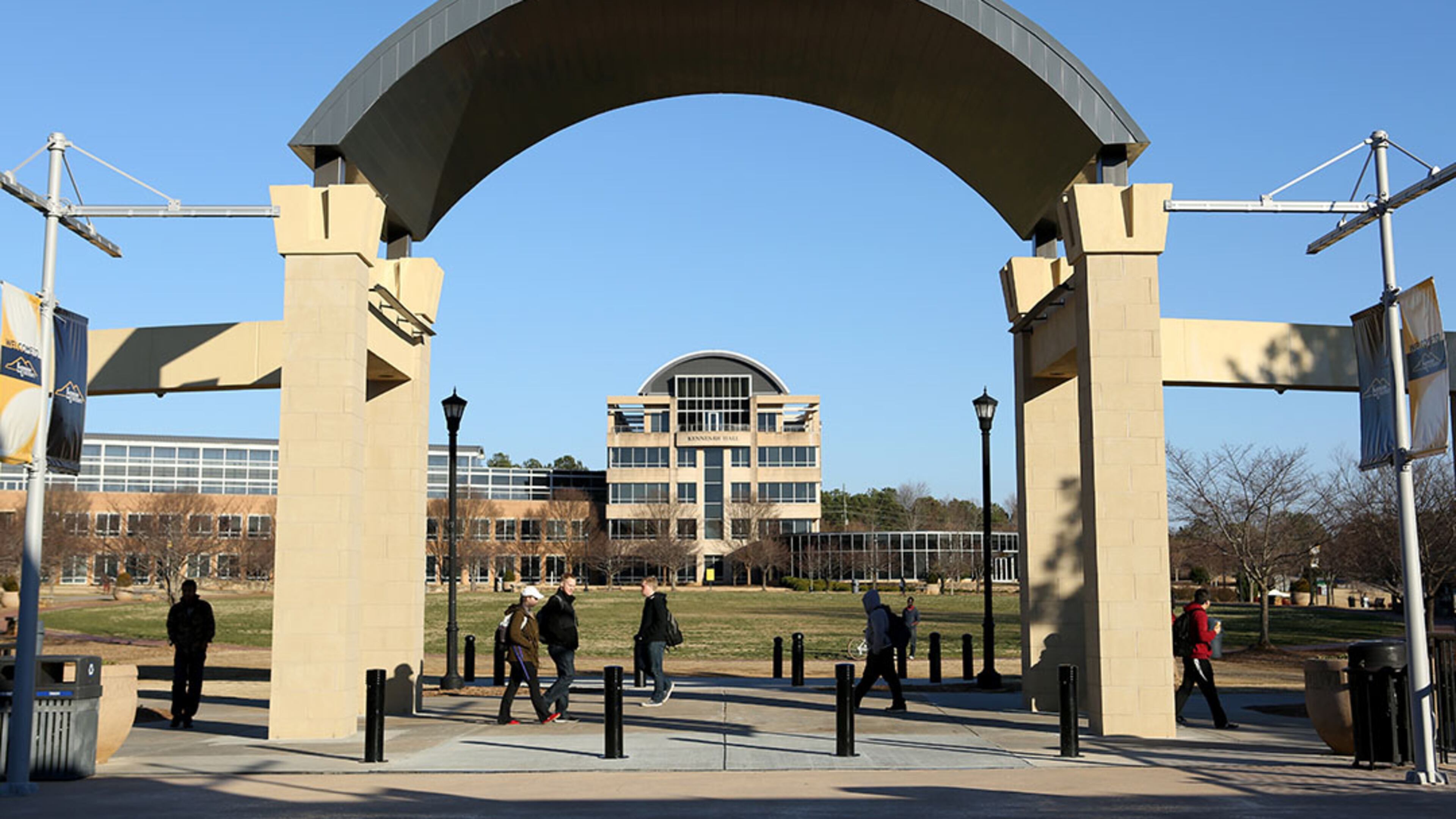KSU denies it will turn away unauthorized immigrants and apologizes

Kennesaw State University on Friday denied that it will begin turning away student applicants who don’t have legal status in the United States, while apologizing for miscommunicating about its plans.
“Unfortunately, we have miscommunicated regarding (University System of Georgia) admissions policy and how KSU’s academic requirements impact fall 2018 admissions,” KSU interim President Ken Harmon said in a statement sent to The Atlanta Journal-Constitution. KSU declined to say precisely how, when and where the miscommunication occurred.
KSU issued its statement after students and staff members began posting concerns about the university's admissions policies on Facebook this week. One post from a KSU employee said the university would begin turning away unauthorized immigrants in the fall of 2020 to comply with the controversial Georgia Board of Regents Policy 4.1.6.
That policy says people who are not lawfully present in the United States shall not be eligible to be admitted to a state university that for the past two recent academic years did not admit all "academically qualified applicants." KSU has rejected such applicants for this coming fall semester, prompting the university to enforce Policy 4.1.6, according to the Facebook post by Marcela Cadavid, an enrollment services specialist at KSU's Recruitment, Retention, and Progression to Graduation Program for Hispanic and Latino Students.
“We are continuing to press them to release this information to the community immediately so that affected students have enough time to plan accordingly,” she said in her post, which had attracted more than 50 reactions and had been shared 41 times by Friday afternoon.
Harmon, KSU’s interim president, denied Friday that Policy 4.1.6 will kick in at the university.
“All academically qualified students,” he said, “will be admitted for fall 2018, as such, the provisions of Board policy 4.1.6 are not applicable for KSU admissions. We apologize for mistakenly suggesting otherwise and for conveying misinformation.”
The University of Georgia, Georgia Tech and Georgia College & State University do not admit unauthorized immigrants under the regents' policy, which has sparked disruptive demonstrations . Two other competitive state schools — Georgia State and Augusta universities — stopped enforcing the policy this year after determining they had admitted "all academically qualified applicants through general admissions during the last two years."
The Board of Regents adopted the policy in 2010, just months after a KSU police officer arrested Jessica Colotl on campus. A native of Mexico who was brought to the U.S. without authorization when she was 11, the Lakeside High School graduate was charged with impeding traffic and driving without a license. Critics of illegal immigration grew angry when they learned KSU was charging her an in-state tuition rate. After Colotl’s arrest, the regents adopted a separate policy requiring all universities to verify the “lawful presence” of students seeking in-state tuition.
In October, Georgia’s Court of Appeals reversed a lower court’s decision that said the state must permit residents who have been granted a special reprieve from deportation to pay in-state tuition at state colleges and universities. At issue is the Obama administration’s Deferred Action for Childhood Arrivals Program, or DACA, which grants two-year work permits and deportation deferrals to immigrants who were brought here illegally as children. Last year, President Donald Trump announced his administration was rescinding the program, but that move has stalled amid federal court challenges.
The 2017-18 school year has been a tumultuous time at KSU, with several high-profile controversies and mistakes by administrators. Sam Olens resigned as president in February after he and university officials did not follow state guidance when KSU made a change that kept cheerleaders from kneeling on the football field during the national anthem. The university is conducting a national search for Olens' replacement.
Meanwhile, two student groups have ongoing lawsuits against the university, accusing KSU of enacting policies that discourage conservative and Christian organizations from speaking or displaying items on campus. Noting the lawsuits, University System of Georgia Chancellor Steve Wrigley requested in March that KSU thoroughly review its student affairs department and create a corrective plan.
Laura Oropeza, a KSU admissions counselor, was among more than a dozen people who commented on Cadavid’s Facebook post this week.
“Students who are going to be affected need to be aware now — not later — because they need to be able to plan accordingly,” Oropeza, who emphasized she was not speaking on behalf of the university, said in an interview before Harmon released his statement. “The high school students who won’t be able to apply need to know so that they have a Plan B.”
Kennesaw State University interim President Ken Harmon issued the following statement Friday:
“Unfortunately, we have miscommunicated regarding USG admissions policy and how KSU’s academic requirements impact fall 2018 admissions. First, the Board of Regents sets and administers policy for all USG institutions, and KSU’s responsibility is to follow USG policy. Second, we made a mistake in understanding board policy 4.1.6. As a result, we incorrectly communicated about the admissions process and status for KSU’s fall 2018 freshman class. All academically qualified students will be admitted for fall 2018, as such, the provisions of Board policy 4.1.6 are not applicable for KSU admissions. We apologize for mistakenly suggesting otherwise and for conveying misinformation.”
Here is Georgia Board of Regents Policy 4.1.6:
A person who is not lawfully present in the United States shall not be eligible for admission to any University System institution which, for the two most recent academic years, did not admit all academically qualified applicants (except for cases in which applicants were rejected for non-academic reasons).



